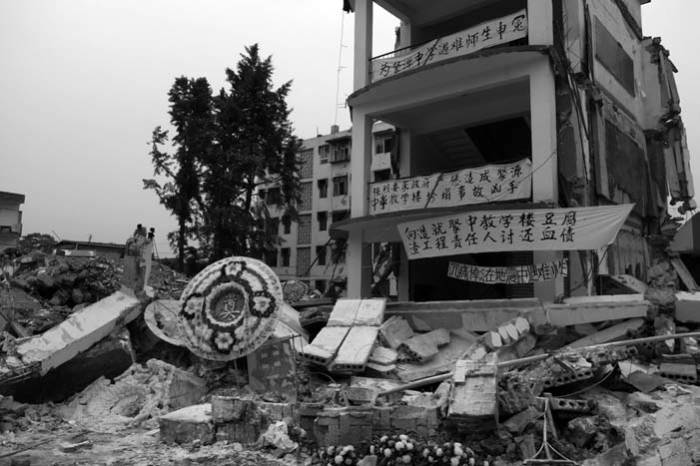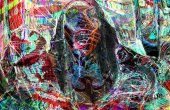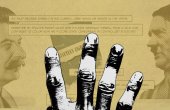Ai Weiwei: Paranoid Citizen

In 2006, even though he could barely type, China’s most famous artist started blogging. For more than three years, Ai Weiwei turned out a steady stream of scathing social commentary, criticism of government policy, thoughts on art and architecture, and autobiographical writings. He described the irony of being investigated for “fraud” by the Ministry of Public Security, made a modest proposal for tax collection, and wrote about the schoolchildren who died in the 2008 Wenchuan earthquake because of the government’s “tofu-dregs engineering.” Then, on June 1, 2009, Chinese authorities shut down the blog. (It was later translated into English and published by the MIT Press.)
In recognition of Banned Books Week, we are sharing, below, one of Ai Weiwei’s posts, published two days before the anniversary of the Wenchuan earthquake, on May 10, 2009.
The one-year anniversary of the May 12 Wenchuan earthquake is fast upon us, and the government has repeatedly made it clear the schools that collapsed in the earthquake and the students who were killed have nothing to do with the quality of the buildings’ construction, have nothing to do with what people are calling “tofu-dregs engineering.”
Organizations representing the wisdom and authority of the government, as well as the media, are attempting to convince the people that because the magnitude of the earthquake was so very high, the schools’ collapse was inevitable, and the death of these students unavoidable. As long as this is heaven’s will, of course no man should shoulder the responsibility.

Compelled by the will of the state, truth and fact no longer exist; a long string of Arabic numerals has replaced the value of life. So-called scientific research is merely wagers made by pandering technocrats, and in every political deal made in this nation, the first people to come up short on probability are always the common folk. This is because they aren’t “people” in the real sense of the word; even as the nation’s sixtieth anniversary is approaching, we still lack the right to vote, and have no opportunity to speak. The grievous and indignant sentiments of the masses are continually replaced by tedious amusement and celebrations. Hardly astonishing, the result is the same as with the other great events that occurred in this nation’s history: the will of the state has once again brutally supplanted facts and individual suffering, once again sunk the people into an abyss of despair.
What needs to be asked is, What kind of government ignores the wishes and the feelings of the people, unscrupulously deviating from reality and distorting facts when touching on their lives or the people’s property and benefits?
Even after the ideology behind a “scientific outlook on development” was proposed at the 17th National People’s Congress, these verdicts violate the principles of science. The cause of death for those thousands of wrongly dead students has been determined to be nothing more than their miserable fates; they were in the wrong place at the wrong time, and this is the reason that their adolescent flesh and blood ended up mixed in with the tiled rubble and those concrete reinforcements cut with sand. The official reasoning is clear: in a magnitude 8 earthquake, school buildings will crumble and students will die; anyway, a school education never had any use, and knowledge cannot prevent death; the longer you stay in school, the greater your chances of death, and fate naturally becomes more tragically absurd. As for the majority of buildings that did not collapse in earthquakes of equal magnitude, what was it about those students that kept them from dying? It can only be explained that their ancestors didn’t serve in the dynastic courts, thus accumulating good karma for them.
What needs to be asked is, What kind of government ignores the wishes and the feelings of the people, unscrupulously deviating from reality and distorting facts when touching on their lives or the people’s property and benefits? And what is the reason for this? Could we deduce the following: the ethics and morals supporting the state are built upon a bogus foundation of lies, and the existence of truth will shake the foundation of society? Their basis of power can only be stabilized by evading or escaping responsibility, and sacrificing social justice and equality.
This is the only explanation for why, before everyone knows the truth, these people choose deceit and treachery. Isn’t this foolish? It is foolish, but it arises from helplessness. A society without ideals, a society that departs from humanitarian principles, that abandons fundamental human rights and human dignity, can only exist in a reality that rejects facts, in a space that rejects justice and equality.
Suppression and deception are the attributes that allow for this society’s existence; it could not exist without lies. People maintaining illusions in this kind of society will eventually pay a higher price.
The rules of this ancient game are clear, they are based on eternal principles: encourage lies, erase memory, those who cause disasters escape, the innocents will be punished.
This isn’t the only such disaster in our memories, and it isn’t the most deplorable. We are already accustomed to letting go and forgetting, and all the details of this disaster will similarly be forgotten by the living; just as before, it will be as if nothing ever happened. Ultimately, all of these disasters will converge in one place, composing a landscape of civilization and progress that will boggle the mind. The rules of this ancient game are clear, they are based on eternal principles: encourage lies, erase memory, those who cause disasters escape, the innocents will be punished.
As for the innocents in this menacing place, there is but one possibility that might relieve them from suffering and bid farewell to abandonment: make zealous pleas for the truth, calmly reject further lapses in memory. Try just this once, for the daughter you will never see again, for she who “lived happily in this world for seven years,” Miss Yang Xiaowan, and for her mother and the thousands of unfortunate parents like her. Continue to inquire about the “tofu-dregs engineering,” interrogate every hour of every day, until our problems become a part of reality, until every “tofu-dregs” structure is exposed and collapses. Under extremely paranoid rule, being a chronically “paranoid citizen” is today’s only possibility for living happily and healthily.
Ai Weiwei is one of today’s most important and controversial artists. He is the author of several books, including “Ai Weiwei: Beijing Photographs, 1993-2003” and “Ai Weiwei’s Blog: Writings, Interviews, and Digital Rants, 2006-2009,” from which this article is excerpted.

